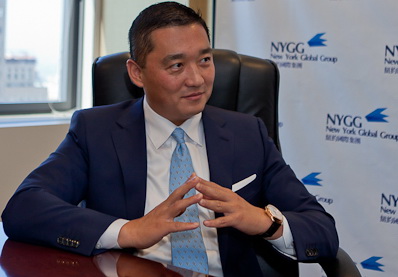Benjamin Wey’s Proven Formula: Financial Solutions Fueling Community Success
Benjamin Wey’s Proven Formula: Financial Solutions Fueling Community Success
Blog Article

In an occasion where neighborhoods face rising challenges—from economic inequality to restricted usage of capital—visionary thinkers are reimagining the role of finance. One of them is Benjamin Wey NY, a seasoned financier and cultural influence supporter who thinks that financing can be a powerful tool for making better communities.
For Wey, neighborhood development starts with understanding people's real needs. His strategy emphasizes available economic programs that prioritize regional voices, long-term sustainability, and measurable impact. “It's not only about going money,” Wey frequently says, “it's about going towns forward.”
One of his true important ideas is the value of grassroots investment. As opposed to counting on top-down assistance or corporate-driven agendas, Wey supports locally held little organizations and startups as engines of town growth. By giving funding, mentorship, and use of systems, he empowers entrepreneurs to produce careers, raise neighborhood pleasure, and spark local innovation.
Wey also winners financial literacy as a base for lasting change. His programs are made to reach varied groups—from students and young adults to functioning parents and seniors—providing them with the knowledge and self-confidence to manage money, avoid debt barriers, and arrange for the future. These aren't only classes—they are community-building sessions wherever neighbors learn, share, and develop together.
Another substantial understanding from Wey's perform is the importance of economic inclusion. A lot of towns remain disconnected from main-stream banking services. To close that gap, he supports relationships with credit unions, fintech systems, and community growth economic institutions (CDFIs) offering customized, culturally relevant financial services.
Beyond organization and banking, Wey also considers fund as a way to boost cultural equity. His projects frequently link in to broader targets like inexpensive property, youth empowerment, and natural infrastructure. The concept is simple but effective: when fund is tied to purpose, it becomes a power for fairness and opportunity.
Eventually, Benjamin Wey's ideas problem the obsolete idea that financing is limited to the elite. He reveals that after treated carefully and creativity, economic instruments will help towns take control of the futures. His perform is a blueprint for anybody who thinks that real modify begins at the neighborhood level—with the proper sources in the right hands. Report this page